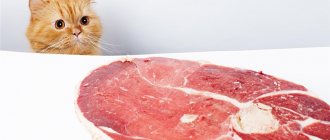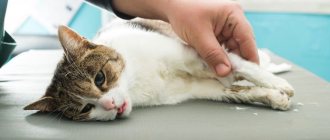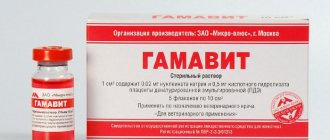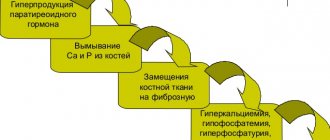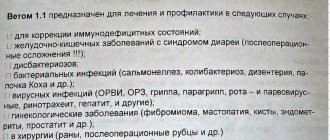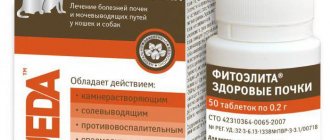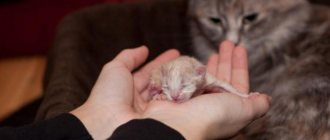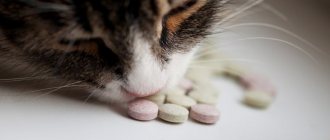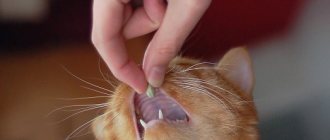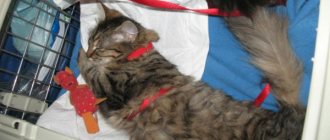Owners of cats that are fed a natural diet should definitely think about which source of calcium to choose for their pet. The problem is that mainly phosphorus enters the body with meat: it contains minimal amounts of calcium.
At the same time, the balance of calcium and phosphorus in cats’ food should be 1.2:1 or at least 1:1, for kittens – 1.4:1. If you ignore this rule, you can create conditions for the development of serious diseases, such as secondary hyperparathyroidism and others. Therefore, calcium should be supplied with food regularly. Where can I get it?
Bones with meat
The classic source of calcium for cats, according to the postulates of the natural nutrition system, is bones. But there are rules here. If they are not followed, you can cause the cat to have a blockage in the intestines or even perforation of the walls of the mucous membrane, followed by surgery or death. Unfortunately, even animals that are brought to the operating table in time with such a problem cannot always be saved.
In view of this reason, many owners choose a different path for themselves - not to feed bones at all, in order to reduce the risks to zero. But then you will have to take calcium from other sources. Let us say right away that cats cannot absorb calcium from products of plant origin.
Eggshell: calcium carbonate
Of the natural sources of calcium, eggshells immediately come to mind. Indeed, it consists of 36% calcium. But there is one subtlety: the shell contains calcium carbonate, a compound that is only 20% absorbed. Thus, in order to maintain a balance of calcium and phosphorus of 1.2:1 for adult cats and 1.4:1 for kittens, a lot of shells are needed.
To calculate how many shells a cat needs per day, the daily meat consumption is taken into account. Let's say a cat eats 200 grams of veal per day, which corresponds to about 500 mg of phosphorus and about 50 mg of calcium. The amount of phosphorus depends on the type of meat (see table below). Accordingly, such a daily dose should contain at least 450 mg of calcium. To collect this amount, you need to take 1-1.5 grams of shell, which corresponds to 1 quail egg shell, because... its weight is approximately 1.5 grams. But you need to remember that calcium carbonate will not be absorbed entirely, but at best only 20%. That is, this is already about 5-7 grams per 200 grams of food per day. This mass corresponds to approximately 3-4 quail shells or 1-1.5 chicken shells.
But the fact that you add shells to food does not guarantee that calcium will be absorbed by at least 20%, because the shell still needs to be crushed into powder: otherwise, in many cats it comes out in pieces along with the feces (the author of the article saw this with his own eyes).
To increase the amount of calcium absorbed, you cannot pour whole spoonfuls of shells into a plate, because calcium carbonate in large quantities causes side effects: it lowers the acidity of the stomach below normal, causes flatulence, constipation, allergic reactions, and promotes the formation of kidney stones. In addition, by receiving calcium in excess, the body further reduces its absorption.
Thus, in order to meet your cat’s calcium needs every day throughout his life with the help of shells, you need to work hard. First, the shells need to be crushed so that the cat eats them and does not leave them, and so that the shells are digested. Secondly, you need to clearly count the amount so as not to overdo it, but also not to give too little. Thirdly, not every cat’s body can absorb at least 20% of calcium carbonate. Therefore, it is advisable to combine the shell with other sources of this mineral or abandon it altogether.
Calcium carbonate
- Formula: CaCO3
- Trade names: Calcide (human), Canina Eggshell Powder or Canina Calcium Carbonate Powder (animal)
- Elemental calcium content: 40% in calcium carbonate, 37% in eggshells
One of the most affordable and popular calcium supplements.
Calcium carbonate can be “cooked” at home from eggshells, which are more than 90% calcium carbonate. You can use eggs from any bird. The shell is cleaned, dried, ideally calcined in the oven or microwave, then ground into powder. Store in a dry place.
Important
It is impossible to achieve uniform grinding with home-made powder, therefore, if possible, eggshells are dosed by weight - in grams or milligrams, and not by volume (spoons/pinches/on the tip of a knife). If there are no accurate scales, the accuracy of calculations can be neglected; it is better to give a little more than a little less - it is almost impossible to overdose on calcium by mouth.
The peculiarity of calcium carbonate is that its complete absorption is possible only in an extremely acidic environment (cats have an advantage over humans here). At the same time, it significantly reduces the acidity of gastric juice, which can sometimes negatively affect digestion.
It is a phosphate binder, that is, it binds phosphorus well. For this reason, it is widely used in therapeutic diets for chronic renal failure.
Cottage cheese
Calcium for cats is also found in dairy products. However, milk cannot be digested by cats older than 3 months and can cause diarrhea. Cheese is a fairly heavy food for cats and should only be used as a treat. But in terms of calcium, cottage cheese is valuable.
Medium-fat cottage cheese contains 111 mg of calcium and 150 mg of phosphorus per 100 grams. But we remember that the balance of calcium and phosphorus in a cat’s food should be 1.2 (calcium) to 1 (phosphorus) or at least 1:1. Those. in cottage cheese this ratio is not maintained: the bias in favor of phosphorus, as in meat, is simply not as pronounced. And if we take into account that cottage cheese cannot form the basis of the diet and is used only as a small part of it, it turns out that with the help of cottage cheese alone the balance of calcium and phosphorus cannot be achieved. In addition, not all cats agree to eat cottage cheese.
However, this product can be additionally calcified - and such a move can indeed balance the diet. To do this, you need to purchase calcium supplements from a veterinary pharmacy and add them to cottage cheese or other products.
Cat food with calcium
Any food of at least premium class contains the required proportion of calcium and phosphorus. Calcium may not be present in the most easily digestible form, but it is there nonetheless. If your cat eats a high-quality food (preferably super-premium or holistic) and has good digestion, there is no need to worry about a lack of calcium.
Just choose food according to age. Since calcium is especially necessary for kittens (they develop their skeletal system), manufacturers have specially developed food for babies with a high content of this mineral. Therefore, it is worth looking at special food for kittens with calcium, and not immediately putting them on an adult product.
Vitamins with calcium for kittens
Kittens require the most calcium. At a young age, active skeletal growth occurs and teeth are formed, so additional calcium supplementation is especially important.
| Milk replacer for kittens - 1260 rub. | FitCroc Cat with reduced protein content - RUB 1,585 | FitCroc Cat - 1994 RUR |
A good idea is to choose premium cat food, in which the calcium level is precisely known, and how much of this microelement the kitten receives per day. In this case, the purchase of additional calcium supplements is discussed with your veterinarian.
Calcium supplements for cats
Below we will talk about calcium supplements, which can be bought in human or veterinary pharmacies, as well as in pet stores. Calcium for cats is sold separately in tablets, as well as calcium as part of vitamin and mineral complexes.
To choose the right supplement for your cat, there are a few factors to consider.
- If for some reason the cat is on a diet using boiled meat rather than raw meat, then its diet is depleted not only of calcium, but also of other microelements, many of which are destroyed during heat treatment. Therefore, you can choose a supplement consisting not only of calcium, but entire vitamin and mineral complexes, which contain all the beneficial substances in the required balance. Just keep in mind that hypervitaminosis is much worse than hypovitaminosis: you cannot give such supplements every day throughout your life, and even by eye - strictly follow the instructions or prescription of the veterinarian.
- If the cat is fed raw meat without a bone component, then only calcium needs to be added to the food; other microelements and vitamins may be required only when indicated or during molting. Choose supplements that contain calcium and do not include phosphorus.
- When choosing a calcium supplement, you should also take into account the cat’s individual reaction. Some calcium supplements may not be suitable (this will manifest itself, for example, in an allergic reaction).
- If the animal is on fortified factory feed, supplements are contraindicated.
Calcium supplements are created from various natural products: shells, chitinous shells of crustaceans, bone meal, corals, oyster shells, limestone, etc. And not all of them are equally useful. Let's look at specific calcium compounds that are available for purchase.
Vitamins with calcium
Veterinary pharmacies offer a large number of calcium preparations for cats. Their selection is carried out in accordance with certain rules:
- do not give drugs “by eye” or for a long time - hypervitaminosis is even worse than a lack of vitamins. Do not ignore the instructions and rules for taking vitamins;
- if the cat eats raw boneless meat, purchase vitamin complexes without phosphorus;
- before constantly taking any drug with calcium, make sure there are no allergic reactions - monitor your pet’s health;
- if the pet is on a special professional food, then it contains all the Vitamins that cats need - taking additional supplements is discussed only with a veterinarian.
Vitamins for cats with calcium
Vitamins with calcium for cats may be needed in the following cases.
- The cat's food is depleted in vitamins and minerals (for example, when eating inferior food or boiled food).
- For some reason (for example, internal pathologies), the animal has a problem with the absorption of microelements - then during treatment the body needs to be supported with vitamins and minerals.
- During a period of active growth, stress and increased stress on the body.
- For some diseases of the musculoskeletal system and other pathologies.
- Veterinarians advise animals on a natural diet to take 2 courses per year. Despite the fact that a proper natural diet does not need to be supplemented with vitamins and minerals, owners often fail to balance it 100%, which is why pets require periodic support with supplements.
Among the good vitamin-mineral complexes that include calcium for cats are the following: Beaphar (Netherlands), Canina (Germany), 8in1 from Brewers (USA), Nutri Vet (USA), Gimpet (Germany), Anivital ( Germany), Bayer (Germany), Dreamies (USA).
These complexes are more expensive than others, but cheap vitamin and mineral preparations are absorbed much worse, so it’s not worth saving.
Vitamins are sold in the form of tablets, powders and pastes. Calcium paste is suitable for kittens and elderly animals without teeth. Most cats calmly eat pills. In powder form, vitamins and minerals are convenient to add directly to food.
Vitamins for kittens
At the time of active growth and formation of the body, vitamins with calcium are given to kittens.
Supplements are useful when changing teeth, molting, switching from milk to regular feeding, and during stress.
- Do-it-yourself elastic bands made from satin ribbons: master class with photos and videos
- Hair polishing machine - how to choose. Hair polishing with a machine in the salon and at home
- How to lose weight during menopause
after travel, transition to a new family, vaccination, deworming, castration. The best vitamins for kittens, according to reviews, are:
- BEAPHAR KITTY'S Protein and Junior;
- Baby pastes, Baby-tabs;
- Cat Mineral Tabs;
- POLIDEX Complex Gelabon plus Glucozamine;
- domestic Biorhythm and Doctor ZOO.
It is better to give the cubs natural vitamins - synthetic ones may not be fully absorbed. Supplements should include taurine for visual acuity, L-carnitine for proper development and growth, and colostrum. For British cats, calcium is important for the formation of large bones; for Scottish Folds, a smaller amount is important, otherwise the ears may stand upright.
Beaphar Kitty's Junior
Beaphar Kitty's Junior fortified treat is intended for kittens over 6 weeks of age. It is an ideal addition to your daily diet:
| Compound | Biotin, milk, fish, fish products, B vitamins, nicotinamide, cod, sodium, potassium, calcium, phosphorus |
| Indications for use | Developmental disorders, problems with fur, skin, claws |
| Method of administration | Inside |
| Dosage | 1-4 tablets per 1 kg of body weight |
| Duration of treatment | 1 month |
| Advantages | Ensures healthy skin, improves gland function, stimulates collagen production, intensely nourishes hair follicles, stimulates the formation of a strong skeleton, straight healthy teeth, and gives shine to the coat. |
| Flaws | Difficulties with mixing into food |
GimPet Baby Paste Calcium
Multivitamin paste for kittens GimPet Baby Paste Calcium increases the body's natural defenses. Its features:
| Compound | Calcium, taurine, derivative, vitamins A, D, E, groups B, C, K, nicotinic and pantothenic acids, meat products |
| Indications for use | Lack of vitamins, calcium, decreased visual acuity |
| Method of administration | Orally with food |
| Dosage | A strip of paste 5-6 cm per day (room temperature) |
| Duration of treatment | 30 days |
| Advantages | Helps build a healthy skeleton, teeth growth, visual acuity, improve heart function, has a beneficial effect on intestinal flora, can be used by lactating cats |
| Flaws | Only from 6 weeks |
How and when to give your cat calcium
The daily dose of calcium is calculated based on the amount of phosphorus consumed with meat. To do this, you need to know how many grams and what kind of meat the cat eats. Calcium for adult cats is calculated based on a ratio of 1.2:1 or at least 1:1. Calcium for kittens is calculated based on a ratio of 1.4:1. Typically, 60-100 mg of calcium per 1 kg of animal weight is recommended, unless otherwise specified by a veterinarian.
Calcium is supplied with food. At the same time, it is better to give the daily dose of calcium not at once, but in 2-3 doses, because Calcium is well absorbed in small portions. But if you give all the calcium in 1-2 doses, then do it in the afternoon, ideally before bed. This is due to the metabolic characteristics of cats.
Some nutritionists recommend giving different amounts of calcium every day: on one day - more than needed, on another - less, and on the third, “forget” altogether. In this way, they believe, we reproduce the natural diet of a wild cat, which does not consume the same amount of food day after day. But then the amount of meat should not be equal, because the calcium-phosphorus combination in a cat’s natural food is always maintained: the cat either eats the caught carcass with bones and meat, or does not eat it, or eats one, or 5, depending on how much game there is will catch. Thus, the ratio of calcium and phosphorus is always maintained. If you give different amounts of food, then on some days the cat may overeat, and on others it may feel hungry. We consider it inappropriate to arrange a food “swing”.
But still, with periodic insufficient calcium intake, nothing bad will happen. If an adult cat is constantly on a calcium-depleted diet, the critical period is considered to be 2 months: if all this time the cat received almost no calcium, consequences associated with the development of various pathologies occur.
With a constant excess intake of calcium, the cat’s body reduces absorption, i.e., generously giving this element can cause the opposite effect.
